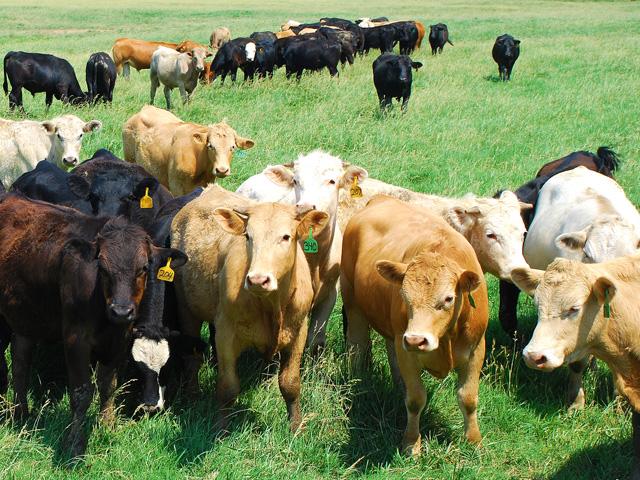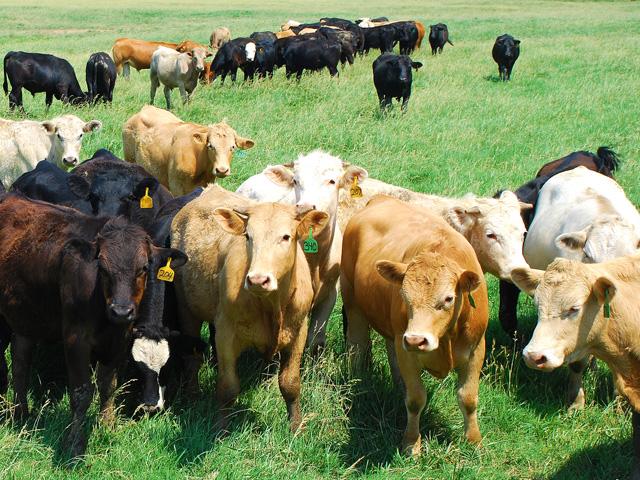Sort & Cull
Farmers and Ranchers Encouraged to Share How Livestock, Poultry, Pets Behave During Eclipse
OMAHA (DTN) -- As I stood in on a Nebraska farmyard in August 2017 during a total solar eclipse, at first I was disappointed. The clouds were so thick I could barely catch a glimpse of the eclipse. But when the eclipse entered totality and it became darker around me, something else caught my attention. Suddenly a group of cattle in a pasture behind me decided to go for a jog around the perimeter of the fence -- and went around the whole pasture.
When the sun came out of totality, they calmed down and went back to grazing.
If you live on a farm or ranch and are at home April 8 during the total solar eclipse, keep an eye out for what's going on around you, not just in the sky: The University of Kentucky Martin-Gatton College of Agriculture, Food and Environment wants your help to observe and record livestock, poultry, pet and wildlife behavior.
Even if you don't observe any changes, the university still is interested. While the press release said it's looking for people across Kentucky, the survey actually allows you to take part and record what you see in different parts of the U.S. or even other countries during an eclipse. You start by filling in what country you are in and approximately how much of a solar eclipse occurred in your area.
"Citizen involvement in this initiative will help researchers better understand animal behavior and highlight the complex relationships between cosmic occurrences and terrestrial life," explained the university.
What it's looking for, according to the news release, includes:
P[L1] D[0x0] M[300x250] OOP[F] ADUNIT[] T[]
-- Various types of behavior changes, such as deviations in feeding, sleeping, movement, vocalizations (e.g., singing or mooing)
-- Productivity declines
-- Indications of perplexity among other behavioral variations.
"These collected observations from diverse areas and animal species will be combined into a report that can then be distributed to all participants," said the university. "Historical accounts suggest that solar eclipses can influence the behavior of birds, mammals, insects and even plants. Often, these observations were made by astronomers whose view of the eclipse was obscured by clouds, allowing them to focus on the animals nearby instead," said the release.
Some of the eclipse-related behaviors that were seen in the past, stated the university, included birds stopped singing in 1544; during one eclipse the fish in a hatchery stopped feeding and sank to the bottom, while in a zoo it was noted that Golden Carp "surfaced to feed, mirroring their nightly behavior."
The release stated some of the other things observed in the past during the eclipse:
-- Generally nocturnal toads actively searched for insects and worms.
-- At some zoos, painted turtles left their sunning boards and searched for protection, similar to their sunset pattern.
-- "Bird behaviors during solar eclipses are particularly varied, with birds flying into houses, roosters crowing early, hens preparing to roost and pigeons ceasing to feed. Total solar eclipses appear to have a similar impact on domestic poultry, with birds mistaking them for nightfall and settling down early."
-- Similar nighttime behaviors were also seen in domestic horses, sheep and cattle.
If you would like to participate, go to https://bit.ly/… and fill in the survey on effect of the solar eclipse on animal behavior. Pass this on to others to encourage more people to share their observations.
If you're still looking for tips on how to safely watch or photography the eclipse, go to https://www.dtnpf.com/….
Elaine Shein can be reached at elaine.shein@dtn.com
Follow her on social platform X @elaineshein
(c) Copyright 2024 DTN, LLC. All rights reserved.






Comments
To comment, please Log In or Join our Community .